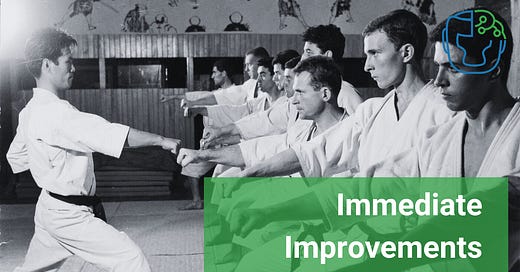Immediate Improvements are NOT Learning
Martial arts coaches must be aware of the "Performance/Learning Paradox." Performance gains are often transient, and that's a big deal.
It’s like a shot of anger quickly dragged into the ground by disappointment.
Have you ever witnessed a student show improvement during class, only to lose that gain in the next session? Maybe even the next round?
As a martial arts instructor, I experienced this frustration with my own students—a lot.
It’s vexing to both the coach and the learner. But I’ve seen coaches take these glimmers of improvement, assume they represent learning, and use the consequent loss of performance as an excuse to berate their athletes for lack of effort.
This is a concrete example of how ignorance of motor learning results in bad, even unethical coaching practices.
And these negative practices result in unnecessary frustration, doubt, and loss of motivation in athletes. Eventually, they contribute to burnout and washout.
What’s happening here?
More importantly, how do we deal with it in a productive way?
In this article, we’re going to do something counterintuitive. We’re going to look at useful Information Processing literature to answer those questions.



